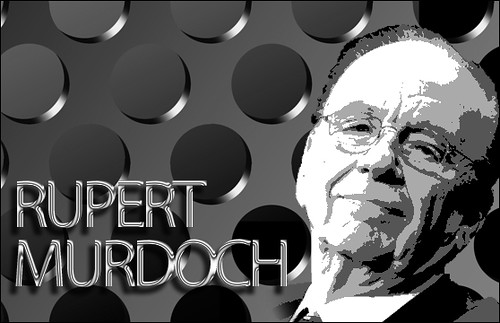
Recent court documents, unsealed as part of the ongoing $1.6 billion defamation lawsuit brought by Dominion Voting Systems against Fox News, have cast a stark light on the internal deliberations and motivations driving the network’s coverage in the aftermath of the 2020 U.S. presidential election. At the heart of these revelations are the candid admissions from News Corp. Executive Chairman Rupert Murdoch, who provided testimony offering an unprecedented glimpse into the complex interplay between journalistic responsibility and commercial interests within a sprawling media empire.
Murdoch’s deposition details a striking admission regarding MyPillow CEO Mike Lindell, a prominent figure known for his unsubstantiated claims of widespread voter fraud. When asked why Fox News continued to allow Lindell to make these assertions and run his advertisements on the network, Murdoch characterized the decision as a purely financial one. He agreed that “it is not red or blue, it is green,” underscoring the substantial ad revenue Lindell provided. Murdoch further stated, “The man is on every night. Pays us a lot of money,” before adding, “At first you think it’s comic, and then you get bored.” This pragmatic view, revealed under oath, indicates a clear prioritization of commercial gain amidst a politically charged landscape.
Despite the significant revenue generated by Lindell, Murdoch also conceded that he possessed the authority to intervene. He admitted he could have pulled Lindell’s MyPillow advertisements, even after the CEO propagated wild, unsubstantiated claims about voter fraud on Fox News programs. Yet, he chose not to, stating, “I could have. But I didn’t.” This inaction, as detailed in the court documents, highlights a deliberate choice made at the highest levels of the media organization, positioning financial considerations squarely against the backdrop of factual reporting and public trust.
The revelations extend beyond Lindell, exposing a broader internal dichotomy within Fox News concerning the veracity of the 2020 election fraud claims. Murdoch privately expressed profound skepticism, indicating he had seen “little evidence” for then-President Donald Trump’s claims and found half of them “bull — and damaging.” Despite these private reservations, he acknowledged that Fox News was “trying to straddle the line between spewing conspiracy theories on one hand, yet calling out the fact that they are actually false on the other.” This precarious balance, aimed at retaining viewership, appears to have dictated much of the network’s on-air posture.

Murdoch’s testimony further confirmed that some of the network’s high-profile hosts, including Sean Hannity, Lou Dobbs, and Maria Bartiromo, went beyond merely providing a platform for baseless claims; they “endorsed” them. While Murdoch initially attempted to qualify this, distinguishing between “Fox” as an entity and individual “commentators,” he ultimately affirmed, “Yes. They endorsed.” This admission directly challenges the network’s defense that its hosts were simply reporting newsworthy allegations or offering protected opinions, signaling a significant point of contention in the ongoing legal proceedings.
Internal communications unveiled in the court filings reveal a landscape of private disbelief among executives and hosts, starkly contrasting with the narrative often presented on air. For instance, host Tucker Carlson privately stated that Sidney Powell was “lying” about voter fraud documents. Rupert Murdoch himself called statements by Trump lawyer Rudy Giuliani “crazy stuff” and “damaging,” while Sean Hannity reportedly said he “did not believe it for one second.” These private sentiments suggest a clear awareness of the falsity of the claims being propagated.
Similarly, Laura Ingraham, another prominent host, expressed her incredulity regarding Giuliani and Powell’s appearances, asserting that “No serious lawyer could believe what they were saying,” and calling Giuliani “such an idiot” and Powell a “complete nut.” These candid internal assessments, now public, paint a picture of internal discord and a recognition among the network’s key figures that the narratives being aired lacked factual merit. This evidence forms a critical component of Dominion’s argument for “actual malice,” a high legal standard requiring proof that statements were made with knowledge of their falsehood or with reckless disregard for their truth.
The genesis of this internal tension and the subsequent shift in coverage strategy can be traced back to election night 2020. Fox News’s decision to call Arizona for Joe Biden late on election night reportedly sparked a significant viewer backlash, which resonated deeply among the company’s executives and high-profile hosts. This reaction immediately raised concerns about the potential impact on Fox News’s business and ratings, suggesting that commercial imperatives quickly superseded editorial independence.

In the days following the election, as various Fox News shows, hosts, and guests continued to push voter fraud claims, Murdoch received messages from other media executives, some from within Fox Corp., who attempted to persuade him to change course. Viet Dinh, Fox Corp.’s chief legal and policy officer, on November 5, 2020, expressed concern, noting that “Hannity is getting awfully close to the line with his commentary and guests tonight.” These internal warnings highlight an awareness among leadership of the precarious editorial decisions being made.
Further evidence of this internal struggle surfaced in discussions concerning a public statement affirming Biden’s victory. On January 5, 2021, the day before Trump supporters stormed the Capitol, Murdoch spoke to Fox News CEO Suzanne Scott about whether to push Hannity, Carlson, and Laura Ingraham to say something to the effect of “The election is over and Joe Biden won.” Scott’s response was telling: she informed Murdoch that “privately they [the hosts] are all there” but that “we need to be careful about using the shows and pissing off the viewers.” Ultimately, no such statement was made, a decision that underscores the perceived commercial risk of alienating the network’s core audience.
Dominion Voting Systems initiated its lawsuit against Fox News in March 2021, seeking $1.6 billion in damages. The company alleges that Fox News’s actions constituted lies that “deeply damaged Dominion’s once-thriving business” by promoting a conspiracy theory that their systems helped rig the 2020 election. Dominion maintains that the First Amendment, which broadly protects publishers, does not shield broadcasters who “knowingly or recklessly spread lies,” a direct counter to Fox’s defense.
Fox News, for its part, has consistently defended its coverage, labeling the lawsuit as “baseless.” In a public statement, the company asserted, “Dominion’s lawsuit has always been more about what will generate headlines than what can withstand legal and factual scrutiny, as illustrated by them now being forced to slash their fanciful damages demand by more than half a billion dollars after their own expert debunked its implausible claims.” Fox further argued that Dominion’s summary judgment motion took “an extreme, unsupported view of defamation law that would prevent journalists from basic reporting,” and called efforts to “publicly smear FOX for covering and commenting on allegations by a sitting President of the United States” a “blatant violation of the First Amendment.”

The court documents also reveal Dominion’s unsuccessful attempts to counter the election fraud narrative on Fox News. Dominion noted its efforts to book its spokesperson, Michael Steel, on shows hosted by Dobbs, Bartiromo, and Jeanine Pirro to provide counterarguments. These attempts were unsuccessful, though a search of the Fox News website indicates Steel did appear on at least one program, “America’s News Headquarters.” This highlights the challenge Dominion faced in presenting its factual rebuttal to a widespread narrative.
Legal experts are closely scrutinizing the unearthed evidence. Jeff Kosseff, a law professor at the U.S. Naval Academy and former First Amendment lawyer, commented that Murdoch’s testimony suggests Dominion has “a really strong case.” He added, “I can’t recall the last time that I’ve seen so much evidence of actual malice just piled on top of each other.” While acknowledging that a win is not guaranteed, Kosseff stated, “I’d much rather be in the plaintiff’s lawyers’ shoes,” indicating the substantial weight of the evidence against Fox News.
Lee Levine, another First Amendment lawyer, echoed this sentiment, telling The New York Times, “There appears to be a pretty good argument that Fox endorsed the accuracy of what was being said. I’d much rather be in Dominion’s shoes than Fox’s right now.” These assessments from legal professionals underscore the significant legal jeopardy Fox News faces, challenging its long-standing status as the most-watched cable news network for over two decades.
The filing also offered new insights into the intricate relationship between Murdoch and then-President Trump’s son-in-law and adviser, Jared Kushner. It asserts that Murdoch provided Kushner with “Fox confidential information” regarding Joe Biden’s advertisements, as well as debate strategy. This alleged sharing of sensitive, non-public information further blurs the lines between a news organization and a political operation, adding another layer of complexity to the network’s perceived impartiality.

This confidential exchange appears to have faced its limit on election night when Fox News declared Biden the winner of Arizona. Murdoch testified that Kushner called him to protest the call, stating, “My friend Jared Kushner called me saying, ‘This is terrible,’ and I could hear Trump’s voice in the background shouting.” Murdoch’s response remained firm: “And I said, ‘Well, the numbers are the numbers.’” This moment, though brief, offers a rare glimpse into Murdoch’s personal interactions during a pivotal election night.
The documents also shed light on Murdoch’s interactions with other prominent Republican figures. He reportedly urged Senator Mitch McConnell to ask other senior Republicans to refuse to endorse Trump’s conspiracy theories. In an exchange with Paul Ryan, a Fox Corp. board member, Murdoch texted, “Trump on Saturday sounded really crazy,” to which Ryan responded with concerns about Trump’s self-conviction of the “farce” and potential “bizarre things to delegitimize the election.” Ryan notably added, “I see this as a key inflection point for Fox, where the right thing and the smart business thing to do line up nicely,” suggesting an opportunity for Fox to align integrity with business strategy.
Beyond the Dominion lawsuit, Lindell himself is facing a separate $1.3 billion defamation lawsuit from Dominion, accused of hurting their business by spreading baseless conspiracy theories about voter fraud. Despite these legal challenges and Fox News’s varying levels of engagement, Lindell has remained steadfast in his claims, publicly stating that he has spent more than $40 million pushing Trump’s baseless allegations of voter fraud. This sum, up from a previous estimate of $25 million, amounts to four-fifths of Lindell’s estimated $50 million net worth, highlighting his significant personal investment in these claims.

Mike Lindell’s relationship with Fox News has not been without its complexities, despite the lucrative advertising revenue. In September 2021, the network refused to run an ad where Lindell promoted a voter-fraud symposium, leading him to temporarily pull his ads from the network. While Lindell maintains he is glad Fox News does not “boycott” him, he has publicly complained that Fox News has not had him on air for a while, attributing it to the Smartmatic lawsuit against the network. This demonstrates the delicate balance Fox attempts to strike between a valuable advertiser and increasing legal pressures.
As the five-week defamation trial in the Dominion case is scheduled to commence on April 17, 2023, the full implications of these unsealed documents for Fox News and the broader media landscape remain to be seen. The revelations underscore the immense pressure faced by news organizations to balance financial viability with journalistic integrity, particularly in a fractured and highly polarized media environment. The ongoing legal battles, including the separate defamation suit from Smartmatic, serve as a significant test case for the boundaries of journalistic responsibility and the legal repercussions of knowingly or recklessly disseminating false information.
Ultimately, these court filings present a compelling narrative of a major media entity grappling with conflicting priorities: the pursuit of ratings and advertising revenue on one hand, and the commitment to factual reporting on the other. The candid admissions from Rupert Murdoch and the internal communications among Fox executives and hosts suggest a calculated business decision to cater to a specific audience, even if it meant endorsing claims privately known to be false. The outcome of the Dominion lawsuit will not only determine the financial liability for Fox News but also set a crucial precedent for media accountability in an era where the distinction between news and commentary, and truth and fiction, has become increasingly blurred.



